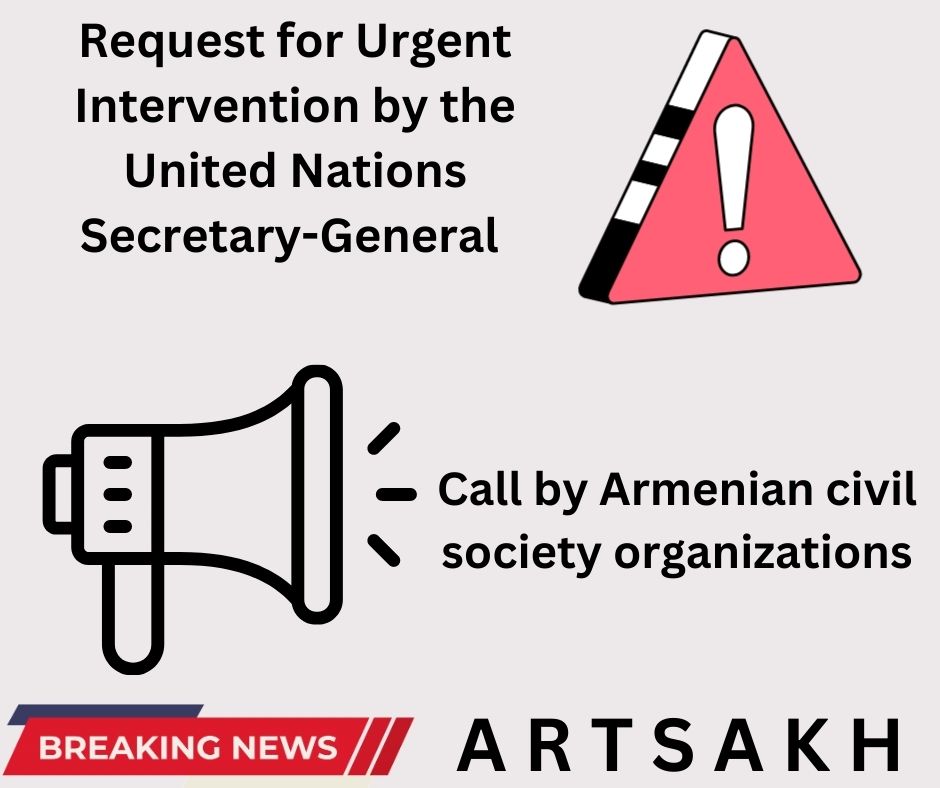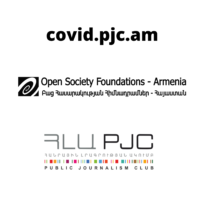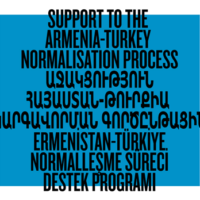
Request for Urgent Intervention by the United Nations Secretary-General: Call by Armenian CSOs
- July 24, 2023
- Category: Announcements
24 July 2023
To: António Guterres, United Nations Secretary-General
Dear Mr. Guterres,
The undersigned civil society organizations call for your intervention in relation to the human rights emergency in Nagorno-Karabakh (Artsakh) caused by the total blockade of the Lachin corridor – the only lifeline that connects the local Armenian people to the Republic of Armenia as well as to the outside world, with an apparent intent of ethnic cleansing.
In line with Human Rights Council’s resolution A/HRC/RES/45/31 on the prevention of human rights violations, we request that you bring the issue of blockade of Lachin corridor and the ongoing threat to Armenian population in Nagorno-Karabakh to the attention of United Nations’ relevant institutions. We request, in accordance with the 1991 Declaration on UN Fact-Finding adopted by the General Assembly and endorsed in General Assembly resolution 46/59, to initiate an urgent fact-finding mission to the region to monitor the threatened rights to life, food, health, education, peace, adequate standard of living, freedom of movement as well as a range of other civic, social, economic and cultural rights.
Since 12 December 2022, Nagorno-Karabakh people have been under siege because of the blockade of the Lachin Corridor. First, the section of the road by town of Shushi was blocked by fake environmental activists sponsored by the Azerbaijani government, who under the pretext of demonstrations against the mining industry were obstructing any passage of people and vehicles between Armenia and Nagorno-Karabakh with the exception of cars of the International Committee of Red Cross (ICRC) and the Russian peacekeeping contingent.[1] Later the protests were replaced by the armed forces of Azerbaijan. On 23 April 2023, the Azerbaijani government installed an official checkpoint on the end of the bridge over the Hakari River that separates Armenia and Azerbaijan.[2]
It is worth mentioning that any checkpoint or presence by Azerbaijani armed forces poses an imminent threat to the security of Armenians passing through the corridor either to or from Nagorno-Karabakh given the fear of being kidnapped, murdered, imprisoned, physically or psychologically tortured, as proved in the last two years. Such fears make it practically impossible for the local indigenous people to enjoy any safety, to exercise their fundamental rights and freedoms, to develop and to self-actualize.
Since 15 June 2023, Azerbaijan completely banned all kinds of humanitarian transportation in both ways blatantly violating its obligation towards ensuring the safe and unhindered passage through the Lachin corridor under the Trilateral Statement of 9 November 2020. Azerbaijan also disregarded the Order of the International Court of Justice (ICJ) of 22 February 2023. [3]

© The Economist (the transport communication added on the map by DDF)
The Armenians of Nagorno-Karabakh have been blockaded by Azerbaijan
For more than 215 days under siege, the rights of indigenous Armenian people in Nagorno-Karabakh are systematically violated to create unbearable conditions for them to leave the area, with apparent ethnic cleansing motives demonstrated by Azerbaijan. Violations are mutually reinforcing and relate to the following:
- right to life, whereas there are frequent ceasefire breaches by the Azerbaijani military, attacks, shootings in the direction of civilians, houses and schools, kidnapping, usually preceded by disinformation by Azerbaijan as if Armenians are the ones violating the ceasefire;
- freedom of movement of people and vehicles, completely banned from and to Nagorno-Karabakh with minor emergency exceptions; it is also disrupted inside the territory of Nagorno-Karabakh both for public transport and private cars caused by the lack of fuel, which affects any other activities related to the healthcare, education, economic development, etc.;
- adequate standard of living, given the constant cuts of gas (for more than 100 days in 215 days period),[4] shortage and rolling blackouts of electricity (for 6 hours per day), poor tele-communication and access to information; lack of construction materials to complete the building of houses for persons displaced by war in 2020.
- access to food and water, as villagers are not able to cultivate their farmland nor feed their cattle given the frequent shootings by the Azerbaijani military, who also damage the agricultural equipment and steal the cattle; the major Sarsang reservoir[5] dries up and has reached a critical level making it unable to compensate for water shortages and provide any more electricity necessary for the people’s survival;
- environmental rights, given the degradation around Sarsang reservoir as the adjacent areas rely on the water from the reservoir for edible herbs, fish resources and irrigation of agricultural lands;
- right to physical health, given the malnutrition, shortage of medication, products of hygiene, clothing and access to medical services, whereas more than 1400 surgeries have been canceled[6]; only a few patients in a critical state have been transferred by ICRC to the hospitals in Armenia for getting due treatment; the number of early-stage miscarriages has nearly tripled in the past month due to high stress among pregnant women and inability to access a balanced diet amid the blockade;
- right to education, given the lack of electricity and internet as well as fuel, whereas the situation is particularly exacerbated for children in villages who must travel long distances to attend school;
- cultural and religious rights, given the destruction of the historical-cultural heritage of early Christian period or their alterations by Azerbaijan aimed at removal of traces of the indigenous Armenian culture from the region;
- economic and social rights, given that 860 business entities have ceased their activities due to the impossibility of importing the necessary goods, and shortage of electricity and gas; about 11,000 people have lost their jobs and sources of income;[7] villagers are not able to transport their harvest to the towns;
- right to mental health, given Azerbaijani leadership’s constant belligerent threats, along with the blockade and attempts to break the people’s will by starvation, lack of job opportunities, economic and social inactivity, insecurity and uncertainty, as well as Azerbaijani military’s continuous terror against Armenians, holding and torturing 35 PoWs, including civilians.
The above mentioned are part of Azerbaijan’s broader strategy aimed at removing the Armenian population from Nagorno-Karabakh, disrupting their livelihood, and creating intolerable conditions to compel them to abandon their homeland, ultimately pursuing a policy of ethnic cleansing.
In December 2021, the principal judicial organ of the UN – the International Court of Justice (ICJ) passed an order of provisional measures, stating that Republic of Azerbaijan must “Take all necessary measures to prevent the incitement and promotion of racial hatred and discrimination, including by its officials and public institutions, targeted at persons of Armenian national or ethnic origin.”[8] In August 2022, the UN Committee on the Elimination of Racial Discrimination (CERD) published its findings on Azerbaijan, where it confirmed Azerbaijan’s coercive tactics and its hateful and antagonistic rhetoric towards Armenia, and stated that the Committee is “deeply concerned about allegations of grave human rights violations committed by the Azerbaijani military forces against prisoners of war and other protected persons of Armenian ethnic or national origin.”[9] In February 2023, ICJ passed another order demanding that Azerbaijan shall, in accordance with its obligations under CERD, take all measures at its disposal to ensure unimpeded movement of persons, vehicles and cargo along the Lachin Corridor in both directions.[10]
The comprehensive depiction of the perilous circumstances confronting Armenians in Nagorno-Karabakh is outlined in the 2020,[11] 2021,[12] and 2022[13] reports on Anti-Armenian Xenophobia and Racism in Azerbaijan, compiled by Armenian civil society organizations.
The importance of political negotiations between Armenia and Azerbaijan, facilitated by various international actors, cannot be understated in reaching a lasting and peaceful resolution to the conflict. However, the situation in Nagorno-Karabakh is dire, with its people facing the imminent threat of dying from starvation and a humanitarian catastrophe. Therefore, a prompt and resolute international response is imperative to prevent this humanitarian disaster.
Considering the broader mandate and responsibility of the United Nations to prevent such catastrophes, we urgently call for action from the UN Secretary-General.
We urge you to:
- Call upon Azerbaijan to take efficient and visible steps to ensure the immediate implementation of the December 2022 and February 2023 orders issued by the International Court of Justice.
- Consider appointing Secretary General’s Special Representative on the Nagorno-Karabakh conflict given the ongoing humanitarian disaster.
- Urge OHCHR and all relevant UN human rights mechanisms – including Special Advisors and Special Rapporteurs mentioned below – to produce urgent reports on the human rights, humanitarian, and human security situation around Nagorno-Karabakh:
- Special Adviser on genocide prevention
- Special Rapporteur on contemporary forms of racism, racial discrimination, xenophobia and related intolerance
- Special Rapporteur on human right to safe drinking water and sanitation
- Special Rapporteur on right to development
- Special Rapporteur on right to food
- Special Rapporteur on right to education
- Special Rapporteur on cultural rights
- Special Rapporteur on minority issues
- Special Rapporteur on rights of indigenous peoples
- Special Rapporteur on right to everyone to the enjoyment of the highest attainable standard of physical and mental health
- Special Rapporteur on the negative impact of unilateral coercive measures on the enjoyment of human rights
- Special Rapporteur on the issue of human rights obligations relating to the enjoyment of a safe, clean, healthy and sustainable environment.
Signed by:
Transparency International Anti-Corruption Centre NGO
Democracy Development Foundation
Helsinki Citizens’ Assembly Vanadzor
Protection of Rights without Borders NGO
Law Development and Protection Foundation
For Equal Rights NGO
Public Journalism Club NGO
Journalists Club “Asparez”
Union of Informed Citizens NGO
Women’s Support Center
[1] CNN, 12 January 2023, https://edition.cnn.com/2023/01/12/europe/armenia-azerbaijan-nagorno-karabakh-lachin-intl/index.html
[2]Azerbaijan closes Lachin Corridor to install checkpoint, 24 April 2023, https://oc-media.org/azerbaijan-closes-lachin-corridor-to-install-checkpoint.
[3] International Court of Justice, Order on the Request for the Indication of Provisional Measures, 22 February 2023, https://www.icj-cij.org/public/files/case-related/180/180-20230222-ORD-01-00-EN.pdf .
[4]Azerbaijan again cuts off natural gas supplies to Karabakh, 22 March 2023, https://arka.am/en/news/politics/azerbaijan_again_cuts_off_natural_gas_supplies_to_karabakh, NK infocenter on Facebook, 22 March 2023, https://www.facebook.com/ArtsakhInformation/posts/524309106552547 .
[5]Sarsang reservoir has dried up, 5 May, 2023, https://news.am/arm/videos/61229.html .
[6] Report on the violations of individual and collective human rights as a Result of Azerbaijan’s Blockade of Artsakh (Nagorno-Karabakh), Six Months of Blockade,12 June 2023, https://artsakhombuds.am/en/document/1028
[7] Ibid
[8] International Court of Justice (2021, December 7). Application of the International Convention on the Elimination
of All Forms of Racial Discrimination (Armenia V. Azerbaijan): Order. https://www.icj-cij.org/public/files/case-related/180/180-20211207-ORD-01-00-EN.pdf .
[9] UN Committee on the Elimination of Racial Discrimination publishes findings on Azerbaijan, Benin, Nicaragua, Slovakia, Suriname, United States of America and Zimbabwe. (2022, August 30). UN Human Rights Office of the High Commissioner. https://www.ohchr.org/en/press-releases/2022/08/un-committee-elimination-racial-discrimination-publishes-findings-azerbaijan.
[10] International Court of Justice, Order on the Request for the Indication of Provisional Measures, 22 February 2023, https://www.icj-cij.org/public/files/case-related/180/180-20230222-ORD-01-00-EN.pdf .
[11] Transparency International Anticorruption Center et al, Report, Xenophobia in Azerbaijan 2020, https://www.transparency.am/hy/publication/pdf/235/1340
[12] Transparency International Anticorruption Center et al, Report, Anti-Armenian Xenophobia and Racism in Azerbaijan 2021, https://www.transparency.am/hy/publication/pdf/266/9583
[13] Transparency International Anticorruption Center et al,Report, Anti-Armenian Xenophobia and Racism in Azerbaijan 2022, https://www.transparency.am/hy/publication/pdf/335/10619





